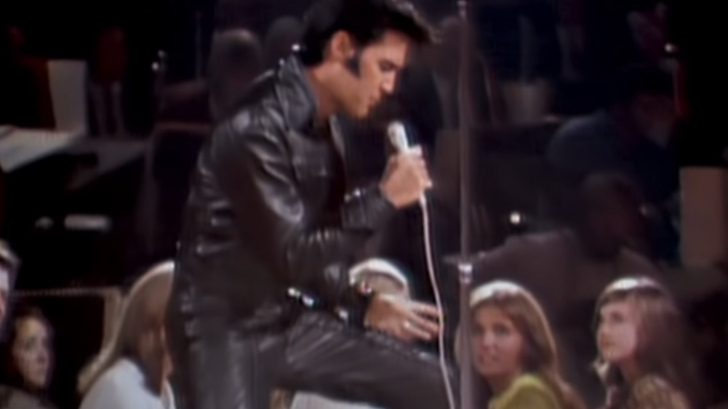In the annals of music history, few events have left as indelible a mark as the Woodstock Rock Festival of 1969. An iconic gathering of counterculture, music, and hope, it featured legendary acts like Jimi Hendrix, Joni Mitchell, and Crosby, Stills, Nash & Young. However, conspicuously absent from this star-studded lineup was the King of Rock ‘n’ Roll himself, Elvis Presley. Why didn’t Elvis perform at Woodstock, the defining festival of a generation?
Elvis’s Vegas Venture
The answer lies in Elvis’s own musical journey during that pivotal year. In 1969, Elvis was riding high on the success of hits like “Suspicious Minds,” “In the Ghetto,” and “Don’t Cry Daddy,” all of which had stormed the Billboard Hot 100 charts. Engaged in preparations for his grand return to live performances at The International Hotel in Las Vegas, Elvis was squarely focused on his forthcoming shows. These performances marked a significant moment in his career, reigniting his relevance in the contemporary music scene after the ’68 Comeback Special.
A Clash of Sounds
Considering the eclectic lineup of artists at Woodstock, it becomes apparent why Elvis might have opted out. The festival showcased acts deeply rooted in the hippie counterculture, featuring folk-rock and hard-rock sounds that defined the era. In stark contrast, Elvis had embraced a polished, horn-heavy pop style, a departure from the raw energy of Woodstock. Imagining Elvis singing his soulful tunes amidst the psychedelic sounds of Woodstock feels like a jarring clash of musical worlds.

Organizer Michael Lang, reflecting on Woodstock’s impact, emphasized its enduring resonance in a 2009 interview with Billboard.
He noted, “It’s always interesting how much it resonates today and how present it still is in so many people’s minds and how many people mark their lives from that point.” Lang’s words capture the essence of Woodstock, an unexpected turn of events that brought hope and unity to a generation marked by war and political unrest.
In hindsight, while Woodstock will forever be etched in history as a symbol of unity and hope, it’s clear that Elvis Presley’s absence was not a mere coincidence. His musical direction and the festival’s lineup were on divergent paths, making his presence at Woodstock an improbable, if not awkward, fit. Nonetheless, both Elvis and Woodstock remain emblematic of the vibrant musical landscape of the late 1960s, each leaving an enduring legacy in their own right.

